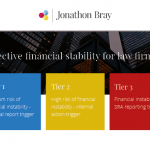On 31st December 2020, the Transition Period ends, and the UK will no longer be bound by EU legislation. Unless an alternative agreement between the UK and EU is negotiated, the current Registered European Lawyer (REL) regime will cease to exist.
All RELs will have the option to automatically become Registered Foreign Lawyers (RFLs) from 1 January 2021. RFLs have more limited practising rights in England and Wales.
Frequently Asked Questions
Q1. What areas of practice are restricted?
There are some restricted areas of legal practice, called “reserved legal activities”, which can only be carried out by a lawyer of England and Wales under an authorised regulator (including the SRA). The reserved legal activities relate to the law of England and Wales and are set out in the Legal Services Act 2007 as:
- The exercise of a right of audience
- The conduct of litigation
- Reserved instrument activities (broadly speaking, English property work and drawing up English trusts and deeds)
- Probate activities
- Notarial activities
- The administration of oaths
For more details, please see the Legal Services Board page.
Q.2 What are the differences between an REL and an RFL?
The key differences are:
- RFLs are not authorised to undertake reserved legal activities without supervision.
- A recognised body (partnership, LLP etc) cannot be wholly owned by RFLs.
- An RFL cannot be a COLP, unless the SRA agrees to a waiver of the rules.
| REL | RFL | |
| How am I regulated by the SRA? | Subject to the same rules of conduct as solicitors once registered. | Subject to the same rules of conduct as solicitors once registered. |
| What legal services can I provide? |
|
|
| What type of SRA-regulated practice can I work in? | All, including being a sole practitioner. | All, except for being a sole practitioner |
| What type of law firm can I own or manage (subject to authorisation)? | SRA regulated:
Not SRA regulated:
| SRA regulated:
Not SRA regulated:
|
| What “compliance” roles can I hold (subject to authorisation)? |
|
NOT Compliance Officer for Legal Practice / Head of Legal Practice (COLP / HOLP) – unless the SRA agrees to a waiver |
Q.3 My practice is based solely on the law of my home jurisdiction. Do I need to become an RFL?
In short, no.
There may be commercial reasons why having English and Welsh regulation is desirable for clients, banks etc, or practical reasons such as the structure of your firm and / or your role within it. But if your practice doe not involve reserved legal activities, then you do not have to be registered with the SRA.
Q.4 My REL practice includes the reserved legal activities and I would like this to continue.
In this case you will need to become a solicitor (or other type of lawyer of England and Wales, such as a barrister).
If you have been an REL for 3 years (by 31st December 2020), and have experience of English law (including EU law), you may be eligible for the Integration route under the Establishment Directive (98/5/EC).
Under the Integration route, a relatively straightforward application, along with some corroborative documentation, a fee to the SRA and DBS check, will enable you to apply become a solicitor without sitting any exams.
Applications for admission under the Integration route must be made before 31 December 2020.
Given the timing, there may be a gap between the 1st January 2021 and admission as a solicitor, where you will need to restrict your practice to that of an RFL.
If you have not been registered for 3 years, or do not have sufficient experience of English/EU law, the Qualified Lawyer Transfer Scheme (QLTS) route is still open to you.
The QLTS involves two exams. RELs’ may be entitled to some exemptions, which are applied for via the mySRA account. The deadline for applications for exemptions as a REL is 31st December 2020.
The QLTS route ends in Autumn 2021, with the final exams in July and December 2021.
If a former REL misses the deadlines for the QLTS, then some of the exemptions may still apply under the new Solicitors Qualifying Exam (SQE) route, which starts in Autumn 2021. This will be the only way for anyone to qualify as a solicitor at that point.
Q.5 I am an REL and a COLP. What do I need to do?
Either you will need to qualify as per Q.4, or the firm will need to appoint a new COLP who is an English lawyer. We are exploring whether the SRA is willing to issue waivers on this point.
Q.6 I am an REL and the COFA / MLRO / MLCO. What do I need to do?
There is no restriction on RFLs taking up these roles.
Q.7 I only provide (non reserved) English legal services, and those from my home jurisdiction. Can I continue to do the same as an RFL? Do I have to be registered as an RFL?
Yes, you can carry out those activities as an RFL.
And no, you do not have to be an RFL to carry on those activities, you can do so under your home jurisdiction title. There may be commercial reasons why your firm would wish you to continue with the RFL registration.
RFL status also allows you to be a partner/director/owner of an English law firm, without the firm having to convert to ABS status. This is perhaps the single biggest advantage of being an RFL.
Q.8 Our firm is wholly owned and managed by RELs. Do we need to make any changes?
Yes. Whether you are a “recognised body” (LLP, partnership etc) or a “licensed body” (ABS), then you will need to ensure at least one manager is an English lawyer.
In either case your COLP has to be an English lawyer (see above).
Q.9 I am a sole practitioner REL, can I continue as an RFL sole practitioner?
I am afraid not. Either you need to convert to a solicitor as per Q.4 or consider restructuring to another form of “recognised body” so that there is at least one English lawyer owner. For example, you could go into partnership with a solicitor (subject to authorisation, which may take three months).
If you do not conduct any reserved legal activities, you can consider de-registering and practising under your home jurisdiction title.
Q.10 What do I need to do to become an RFL?
Renew your registration as an REL by 20th November 2020 and the SRA will automatically switch your registration to RFL on 1st January 2021.
Q.11 What do I do if I do not want to become an RFL?
If you have yet to renew your registration, you need to complete the RFL opt out form. You will need to wait a couple of days before renewing your registration. The SRA will renew your registration until 31st December without charge and from 1st January 2021 you will only be able to practise non reserved legal activities.
If you have already renewed, you can apply to de register through mySRA at any time. There are no obvious refunds noted.
Got more questions?
See the relevant SRA guidance here and here.
Or contact us to talk to one of our regulatory advisers.








